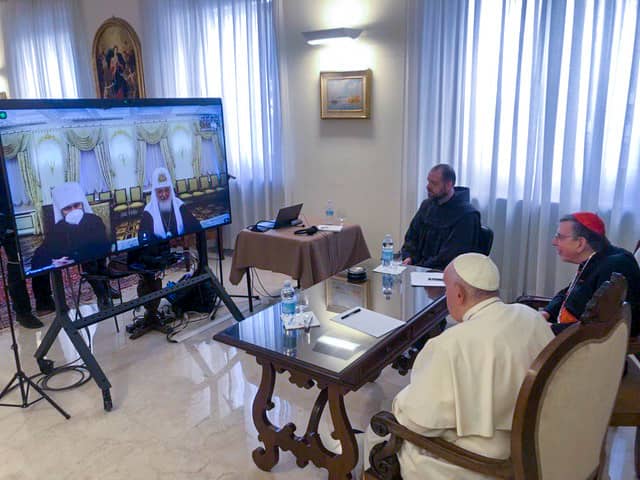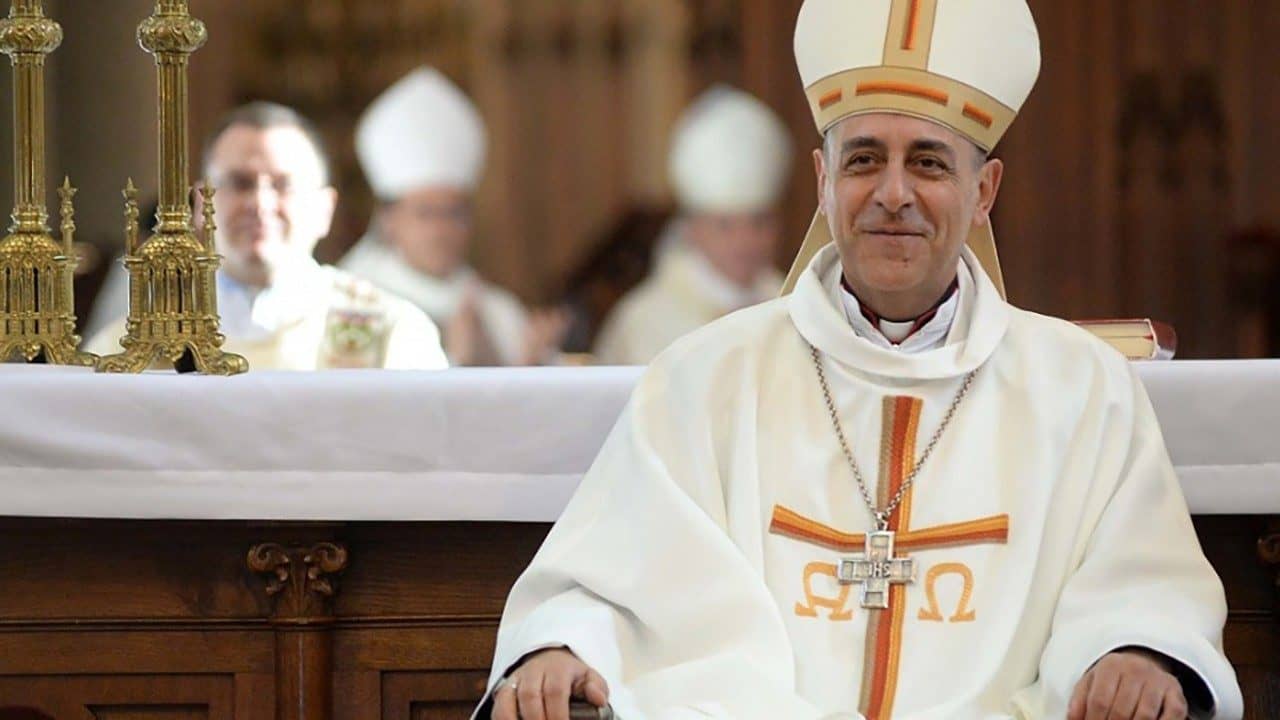ROME – One great thing about the “end-of-the-year” features that proliferate in late December is that they give news outlets another bite at the apple – that is, another chance to light a fire under a story that deserves not to slip through the cracks of information overload.
Herewith, a sampling of Crux reporting from 2017 that’s definitely worth another look. Trust me, these are stories whose shelf lives shouldn’t be limited to the day when they occupied one of the lead spots on our home page.
Feast of St. Cajetan was when the future Pope Francis came out to play
By Inés San Martín
August 11, 2017
From the beginning, one conceptual mistake that many observers in the States and Europe have made with respect to Pope Francis is trying to understand him by the measure of Western standards – left v. right, populist v. elitist, etc.
Instead, the natural frame of reference for an Argentine pope is, well, Argentina, and nobody’s better at unpacking that background than Crux’s very own Argentine Vatican correspondent.
In this piece, San Martín explains that the popular Argentine feast of St. Cajetan – ironically, the patron saint of bankers – was a rare occasion when the future Pope Francis came into view in his native country, beaming, laughing, and taking delight in the company of ordinary people. San Martín also makes the point that Francis’s fondness for the feast, and the 16th century saint behind it, suggests his views on capitalism and finance aren’t quite as one-dimensional as they’re sometimes portrayed.
Lay group’s tale one of exorcisms, power struggles and abuse charges
By Claire Giangravè
September 2, 2017
If the Pulitzer Prize committee is open to thinking outside the box next time, considering an entry from the “niche” press rather than just the usual suspects, this piece by Giangravè, part of a series of reporting she did from Sicily, would be an awfully strong candidate. It’s powerful, original reporting, based on countless hours of personal interviews and immersion in arcane police and legal records, and it shines a light on what remains a serious gap in the Church’s response to the child sexual abuse scandals.
By now, Catholicism has adopted strong anti-abuse protocols for accusations against clergy, but the saga of the Catholic Culture and Environment Association in the small Sicilian town of Aci Bonaccorsi, along with its charismatic and troubled leader known by devotees as the “Archangel,” demonstrates a chronic breakdown in accountability when it comes to lay-led movements.
Essentially, for almost thirty years as reports and rumors of serious abuses circulated, Church officials washed their hands of the situation, saying the outfit was independent and the bishop had no authority over it – despite the fact that the group met in a local parish, and clearly held itself out as “Catholic.”
Read the rest for yourself, and it will be clearer what experts on the abuse scandals mean when they say that although great progress has been made in Catholicism, there’s still much ground to cover.
Cardinal says pope’s top diplomat has ‘poisoned mind’ on China
By Christopher White
October 16, 2017
One of Crux’s core commitments is to be open to all voices in the Catholic conversation, while carrying water for none. Chris White, our national correspondent, ably embodies that principle, working hard to capture a broad cross-section of perspectives, as this interview with Chinese Catholicism’s “Lion in Winter” illustrates.
Never one to pull punches, the 85-year-old Cardinal Joseph Zen, who officially retired in 2009, basically accuses Italian Cardinal Pietro Parolin, the Vatican’s Secretary of State and thus the pope’s most senior diplomat, of being flat wrong in his optimistic assessment of the state of Vatican/Chinese relations, failing to understand the deceitful and brutal nature of the Communist authorities in China, and pushing the pope to make harmful concessions in pursuit of a deal.
“It seems the Secretary of State wants to have a solution anyway,” Zen told White. “He is so optimistic. That’s dangerous.”
Whether Zen is correct is for others to judge, but he’s clearly earned the right to speak – and White does a masterful job of allowing him to do just that.
Why it may take “a little violence” to fix Vatican communications
By Charles Collins
May 5, 2017
Anyone who’s ever competed in a pub quiz in Rome over, say, the last 15 years or so, knows the following truth: Never, ever challenge Charles Collins on a point of fact when his blood is up – unless, that is, you’re eager to have the inferiority of your knowledge exposed.
A 15-year veteran of Vatican Radio, Collins brings that same passion for detail to his role as Crux’s managing editor, pushing us to stay on top of the little things that add up to credibility. He’s also one of the most astute observers of the inner dynamics of the Vatican going, as this piece on the reform of its communications operations illustrates.
Among other things, Collins makes a point that anyone who’s watched the scene likely would concede: Over the years, most of the real communications breakdowns in the Vatican haven’t come from the offices now being overhauled, but from cardinals and other bigwigs who put their foot in their mouth at the just-wrong moment. It’s not clear the new structures address that problem – and the fact of being led by a monsignor, Dario Edoardo Viganò, arguably makes it even more difficult to keep strong-willed Princes of the Church in line.
Life of African-American sainthood candidate a gripping tale
By Shannon Levitt
July 14, 2017
News outlets are often asked why we don’t do more “positive” stories, why we seem obsessed with scandal, controversy, and tragedy. This piece by Levitt is a great riposte to that old saw, proving you don’t have to write puff pieces or sacrifice journalistic tradecraft in order to capture something uplifting.
She tells the story of Julia Greeley, known as Denver’s “Angel of Charity,” a 19th and early 20th century African-American woman born into slavery, who’s now a candidate for sainthood. Her life was a rollicking story, including a nasty stand-off with Colorado’s first territorial governor, who accused Greeley of being in a plot with his ex-wife to kill him. (The governor later backed off that accusation, reconciling with the ex-wife, but that didn’t stop him from making life miserable for Greeley.)
As Levitt reports, Greeley’s commitment to helping Denver’s poor, rooted in her passionate Catholic faith, was legendary. One image that gets mentioned again and again is that of her carrying a mattress on her back to someone in desperate need of a place to sleep, while she herself sometimes slept with animals when she couldn’t find a bed.
Especially at a time when race is again a source of heartache and division in American life, Levitt’s story is well worth another read.
Myanmar Cardinal calls on international community not to abandon Aung San Suu Kyi
By Nirmala Carvalho
Sept. 21, 2017
Hearing different perspectives in the Catholic Church isn’t just a matter of ideology, meaning listening to both liberals and conservatives. Another key element is geography, because where someone lives often shapes how they see the world.
One well-known example is Syria. For most Westerners, it’s axiomatic that Bashar al-Asaad is a bad guy, making it seem paradoxical (to us) that he enjoys the support of most Christian leaders in the country. Yet from their point of view, the alternative to Asaad isn’t buying the world a coke, it’s annihilation at the hands of Islamic radicals.
Another such difference in perspective came into view in 2017, in part thanks to the stellar reporting of Nirmala Carvalho, Crux’s Mumbai-based Asia correspondent, who brings decades of experience and wide contacts with Church mover and shakers across the region.
In the run-up to Pope Francis’s trip to Myanmar in late November, many Western observers were expecting the pontiff to be tough on Suu Kyi, the country’s “State Counselor” and Nobel Prize winner, accusing her of failing to curb abuses of the Rohingya Muslim minority. Yet as Carvalho’s reporting deftly illustrated, that wasn’t the agenda of Church leaders such as Cardinal Charles Bo of Myanmar, who instead see Suu Kyi as the country’s only real hope for genuine democracy, and hoped the pope’s visit would strengthen her position despite her failures.
“Her own lifetime sacrifice to resurrect from the ruins of junta misrule of sixty years is a great historic achievement,” Bo told Carvalho. “In her fragile hands, she holds the dreams of millions of this country.”
It’s the sort of reporting you won’t find elsewhere, and the relevance of Bo’s argument was hardly exhausted with the end of Francis’s trip.
Bergoglio’s red hat marked the start of the Pope Francis era
By Austen Ivereigh
Feb. 20, 2017
For the most part, Austen Ivereigh’s contributions to Crux, like my own, are analysis rather than straight reporting. Yet what makes him a deft analyst is precisely that he’s also a driven reporter, always wanting to unearth the nugget of gold other journalistic prospectors haven’t discovered yet, and this piece from February is a great case in point.
It was the sixteenth anniversary of the future Pope Francis becoming a cardinal, and Ivereigh located the significance of the milestone in that consistory class of 2001, especially its major Latin American players: Oscar Andrés Rodríguez Maradiaga of Honduras; Francisco Javier Errázuriz of Santiago de Chile; Claudio Hummes, the emeritus archbishop of São Paolo, Brazil; Gerardo Majella Agnelo of Bahia, Brazil; and others.
With their emergence as Princes of the Church, Ivereigh said, in effect the stage was set for the Pope Francis revolution sixteen years later.
In Cameroon, religious leaders worry about the rise of ‘Ambazonia’
By Ngala Killian Chimtom
Oct. 1, 2017
Speaking of geography and perspective, another strong addition to Crux’s lineup in 2017 has been veteran Cameroon-based journalist Ngala Killian Chimtom, who’s serving as our Africa correspondent.
Chimtom has done a terrific job of surfacing stories from a Catholic perspective that other Western news outlets simply don’t cover. This story from October, at a time when global opinion was obsessed with independence drives in Kurdistan and Catalonia, is a great case in point, because it turns out that Cameroon has got its own home-blown secessionist movement, complete with its own passports, flag and national anthem.
“Ambazonia,” as Chimtom explains, is basically an expression of frustration by Cameroon’s English-speaking minority with what it regards as chronic neglect and oppression from the country’s Francophone majority.
The President of the National Episcopal Conference of Cameroon, Archbishop Samuel Kleda, told Chimtom the bishops were taking a cautious line, urging dialogue to address real injustices but also trying to persuade the independence movement to take unilateral steps that could end in violence.
If you’ve never heard of “Ambazonia” before, and most Westerners probably haven’t, it’s because you’re not reading Chimtom. Maybe doing so would make a neat New Year’s Resolution for 2018, as a nod of the cap to the rest of the Catholic world.















